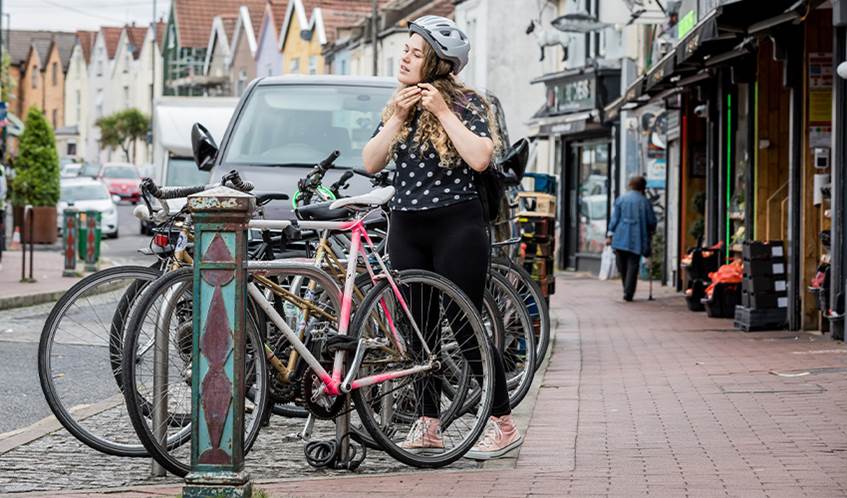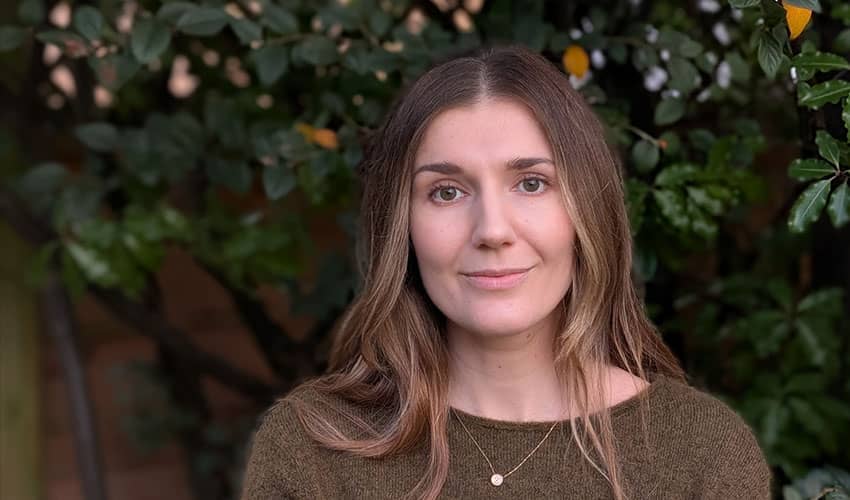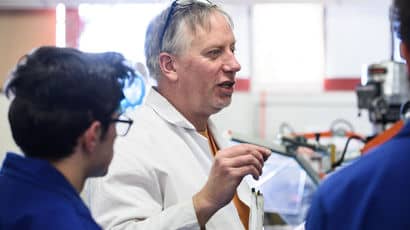New report finds lack of transport choices is leaving young people behind

A new groundbreaking study warns that young people cannot access work, education, and social opportunities, due to transport barriers.
16-24-year-olds made 21% fewer trips compared to 25-64-year-olds in 2019 and this gap has widened over the past 20 years. At the stage in life when young people should be developing themselves, poor transport provision is preventing them from accessing life-defining opportunities.
The report by the University of West England (UWE Bristol) and walking and cycling charity Sustrans is the first of its kind to focus on this age group who are entering adulthood.
Funded by the Health Foundation, it presents new analyses of national travel data, combined with insights from in-depth interviews with young people leaving school and college.
It highlights a risk of economic and social exclusion for young people without access to a car, good public transport, or cycling.
Dr Kiron Chatterjee, Professor of Travel Behaviour at the UWE Bristol said: “There has been little research on the ways that young people manage to get around using the transport system and the barriers they experience.
“This report is a crucial step in showing how young people, a key demographic for everyone’s hopes of achieving net zero, are affected by the transport system in place. The situation for young people is worsening and we need to see a change in transport policy that prevents further decline. The findings make the way forward very clear.”
Availability and cost of transport
Availability and cost of transport are the two main barriers to travel for young people. Interviews revealed multiple instances where young people were unable to pursue opportunities, such as work experience or a better job, due to a lack of transport options and the cost of travel.
National travel data showed 16–24-year-olds without car access are 2.1 times more likely to have a low level of trip making compared to 16–24-year-olds who are the main driver of car. It also showed young people from households with the lowest income quintile are 1.4 times more likely to have a low level of mobility (compared to highest income quintile households).
The report calls on local and national governments to better recognise the needs of young people by giving them a voice in the decisions that affect how they travel.
Other recommendations made through the report include:
- Providing long term dedicated investment for walking, cycling and public transport
- Devolving powers to local transport authorities to take greater control of buses
- Providing financial support for young people to buy a cycle.
Tim Burns, Head of Policy at Sustrans, said: “This report shows national and local transport policies are denying young people opportunities to education and work. This has a knock-on effect on our future economy and in our communities, which will be profoundly damaging.
“Investment will be key to removing barriers, especially those identified by young people, including improving the quality of public transport, and access to cycles and safe cycle routes.”
The report notes that young people recognise the need to be less car dependent and are more likely to use a range of transport options including public transport, walking, and cycling.
Jo Bibby, Director of Health at the Health Foundation, said: “This timely report shows how that young people are being left behind by transport policy decisions. Experiences at this age – such as job and educational opportunities – are crucial to enable young people to thrive, both now and in the long-term. It is disappointing that a lack of public transport and active travel options are denying many young people opportunities to work, socialise and access public services, all of which we know are important for good health.
“It is important that national and local authorities take this opportunity to act, beginning with ensuring that the needs of young people are recognised and prioritised in transport policy making. This must include a prioritisation of active travel infrastructure and public transport, to support healthier lives and a healthier economy.”
Related news

16 February 2026
UWE Bristol researchers awarded grant to explore impact of asset recovery on offenders
UWE Bristol academics have been awarded funding to explore of the impact of asset recovery on deterring offender behaviour and disrupting crime networks.

10 February 2026
Work by UWE Bristol lecturer features in Government’s National Cancer Plan
Work by a UWE Bristol academic has been included in the Government’s National Cancer Plan.

23 January 2026
On-demand minibus services beneficial in rural areas but face financial challenges, trials suggest
Trials of ‘demand responsive transport’ minibus services boosted connectivity for people in rural and suburban areas, according to a new report produced by UWE Bristol researchers.

18 December 2025
UWE Bristol professor appointed National Institute for Health and Care Excellence CEO
Jonathan Benger CBE, Professor of Emergency Care at UWE Bristol, has been appointed as the new chief executive officer of the National Institute for Health and Care Excellence (NICE).

17 December 2025
Findings revealed from first UK study into experiences of mothers who are survivors of rape pregnancy
UWE Bristol academics have revealed the findings of the first UK-based study of the experiences of mothers who are survivors of rape pregnancy.

11 December 2025
Social media influencer work is far more demanding than it looks, research finds
A study exploring the mental health impacts of social media influencer work has revealed that life online is far more demanding than it appears.

25 November 2025
UWE Bristol experts join film Q&A exploring music and melodrama
Academics will take part in the Cary Comes Home Festival, with a post-screening Q&A exploring music, melodrama and emotional storytelling in classic cinema.

17 November 2025
Urgent reform needed to support ambulance-delivered end of life care, study finds
More than three quarters (78 per cent) of paramedics sometimes fear doing the wrong thing when caring for people in the last year of life, new research has found.

13 November 2025
Bristol’s screen industry experiences “boom-and-bust cycle” after post-pandemic recovery, new research from UWE Bristol finds
New research from UWE Bristol provides detailed insight into Bristol's screen sector.

13 November 2025
New AI research to revolutionise animal welfare
A UWE Bristol research project will combine behavioural science and AI to create technology that understands not only what animals do, but how they feel.

10 November 2025
Lessons from Low Traffic Neighbourhoods will drive better public engagement, study finds
Lessons from Low Traffic Neighbourhoods have informed a new toolkit to improve engagement with the public on challenging local street issues.

06 November 2025
First-of-its-kind study aims to help more people spend their final days at home
A new study will explore how architectural design could support end-of-life care in domestic settings.
You may also be interested in

Media enquiries
Enquiries related to news releases and press and contacts for the media team.

Find an expert
Media contacts are invited to check out the vast range of subjects where UWE Bristol can offer up expert commentary.






